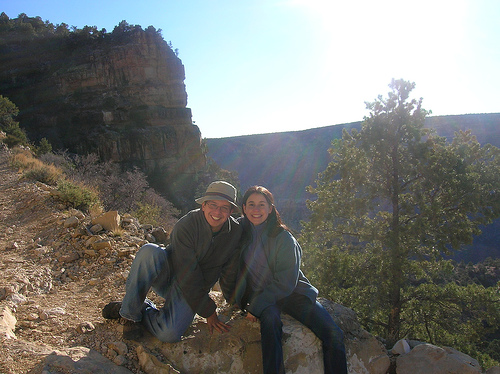On one side you have the hierarchy and conservative base claiming a moral argument in their support of life. To that end, they claim that voting for a supporter of abortion rights amounts to endorsing "homicide."
On the other side, you have a growing attempt by liberal Catholic groups arguing that the Democratic Party better reflects the full spectrum of Catholic teachings because they take into consideration ALL human life.
The NY Times wrote about it today. It seems that the Catholic Church is moving away from the business of informing consciences and more into the business of telling people how to vote. So, a group of nuns, clergy, and laity are arguing on the side of the individual's right to right to act according to one's conscience.
Deacon Greg Kandra pointed to this article on conscience by a retired priest:
Are bishops making Democratic Catholics choose?
Published:Sunday, October 5, 2008
By The Rev. EMMETT COYNE
On Oct. 2, I was a guest at the First Friday Club of Greater Youngstown which meets on the First Thursday of each month. “Preparing to Vote in 2008 Presidential Elections,” was the timely topic, and the presenter was Jim Tobin, associate director of the Ohio Catholic Conference Social Concerns Department in Columbus.
He sought carefully to nuance his presentation to avoid an obvious partisan position. A priest friend of mine who left active ministry in Washington, D.C., eight or 10 years ago had an exit interview with the cardinal. The cardinal asked him why he was leaving. He replied that there was no room for him in the Catholic Church. The cardinal was puzzled and asked what he meant. He replied: “I’m a Democrat.”
In the past there was the perception that the hierarchy in the United States tilted toward the Democrats. In these latter days the perception is the hierarchy tilts toward the Republicans as Democrats are viewed as the party of pro-choice and the Republicans, pro-life. Any American bishop today who comes out publicly to identify with a Democratic candidate would be shunned by his fellow bishops. Popes, cardinals, bishops have not been shy, though, about photo ops with Republican politicians, particularly as they preen being anti-pro-choice. “Can a Catholic Be a Democrat?” was the title of a 2006 book to which the author answered with a resounding no.
Jim Tobin followed carefully the script of the American Bishops, “The Challenge of Forming Consciences for Faithful Citizenship.” He attempted to acknowledge Catholic voters have a thicket of moral issues to cut through, yet abortion hovered above them all. Reflecting the bishops’ exposition, he underscored that all issues do not carry the same moral weigh.
Echoing the bishops, he noted Catholics have to act according to a well-formed conscience. A well-formed conscience, according to the bishops, is interpreted as being fashioned by Catholic moral teaching. Historically, the institutional church did not articulate clearly and concisely, unambiguously and unequivocally its understanding of moral positions. Through centuries it clarified positions. It would like members to think otherwise. When the Church governed the Papal States it routinely condoned capital punishment, a position from which it has shifted.
One’s conscience is one’s own. Ultimately, we live and die as a unique person if we are true to our own conscience. While we seek input from sources outside of self, in the end we have to decide for ourselves. Following the conscientious decision of another is not necessarily being true to self.
Conscience trumps hierarchy
Franz Jagerstatter was an Austrian farmer during the Third Reich. As a father of three daughters he was inducted for military service. He refused, saying Hitler’s wars were immoral. Even his bishop attempted to persuade him to comply “for the good of the Fatherland.” He remained steadfast and was eventually beheaded in a Berlin prison. Jagerstatter, a simply Catholic farmer, was able to conclude Hitler’s wars were immoral while the German-Austrian bishops were unable. They counseled compliance not dissent. He was true to his conscience, despite the bishops and today is being considered a saint, like Thomas More, faithful to his conscience.
Bishops indeed have a task to teach and educate, but they cannot usurp the role of judge of another’s conscience. That is domain of God alone. Unfortunately, today, they are perceived as being the judge of others’ conscience, particularly as they have politicized the Eucharist. They are determining who has a right to receive or not. They have sadly undermined their role as teachers by selective unfairness. They are slow to deny Communion to politicians who favor capital punishment, support an immoral war, the inequity of income distribution, etc.
The prayer a Catholic prays before receiving Communion is, “Lord, I am not worthy to receive you.” But now a Catholic needs to pass judgment on having a well-formed conscience before proceeding to receive Communion (praying now, “Lord, I am worthy!”).
Cardinal Newman’s Letter to the Duke of Norfolk is an effort to discern a personal conscience. He concludes the letter: “Certainly, if I am obliged to bring religion into after-dinner toasts, (which indeed does not seem quite the thing) I shall drink — to the Pope, if you please — still, to Conscience first, and to the Pope afterwards.” Could not one today replace pope with bishops?
The present tilt of the American bishops to intimidate Catholics against supporting Democratic candidates by implying that they cannot possibly have a well-formed conscience undermines the individual’s right to act according to one’s conscience. It usurps God as the ultimate judge.





No comments:
Post a Comment